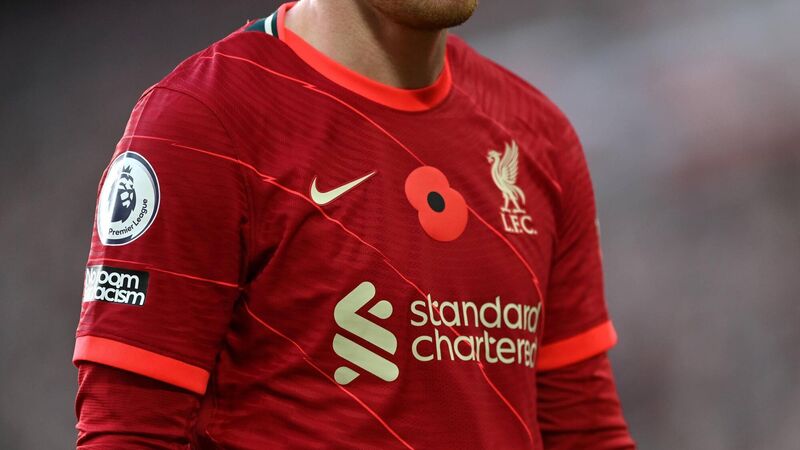Paul Rouse: Failing to take politics out of the poppy

A general view of a poppy on the Liverpool jersey last year.
There is a notion that English soccer teams put the poppy on their jerseys to honour the men who died fighting in the British armed forces in the Great War.
This is only partially true.









